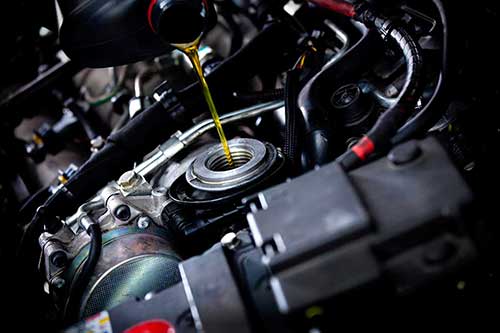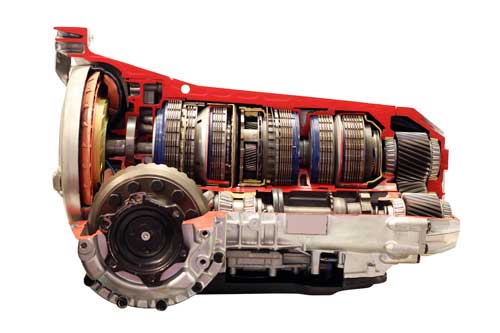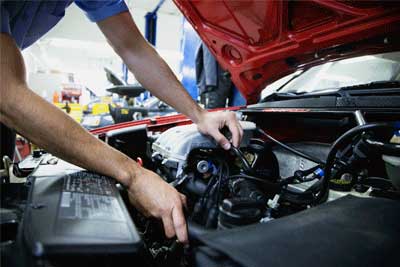
A transmission is responsible for switching between gears and aids in acceleration. When your transmission fails or isn't working properly, you will notice your car lurching or grinding when switching gears, even if you drive an automatic automobile.
Keeping your transmission in working order is essential to making your car operate safely. Flushing your transmission is just one way you can help protect this important component of your vehicle. Here are four reasons you should have your mechanic flush your car's transmission, and you will also learn when this service is needed.
1. Flushing Ensures Healthy Fluid
Transmission fluid can become dingy with dirt and other debris, making it thick and less capable of lubricating your transmission. Flushing your transmission allows all the old fluid to be drained out and replaced with new transmission fluid, which can help ensure healthier operation.
2. Flushing Is Cost-Effective
Transmission fluid is really important, and you can burn up your transmission if you have low levels of transmission fluid, or if you continue to operate your vehicle with old and debris-laden fluid.
A new transmission can cost anywhere from $1,000 to $6,000 depending on whether you purchase a rebuilt transmission or a new one for your vehicle. The type of car you drive can also affect the price. A transmission flush, by comparison, costs around $240 and can help prevent the damage to your transmission that would require a replacement.
3. Flushing Helps Identify Problems
When you have your transmission flushed by your mechanic, they check your transmission for signs of wear and other issues while they replace the fluid. When small problems are discovered early, they can be repaired and help you avoid having to replace the component entirely.
Talk to your mechanic about your vehicle's service history to see if your car needs to have its transmission looked at and flushed.
4. Flushing Can Extend Vehicle Life
Any time you perform mechanical maintenance on your car, you potentially help extend the life of the vehicle. In the process of flushing your transmission, you effectively service the rest of your vehicle as well. Here's how: transmission fluid can often get water, radiator fluid or even coolant in it, which can indicate radiator or other issues in your car.
You may not notice these problems until you get your transmission flushed, but your mechanic will see red flags immediately and take measures to tune up your vehicle for longer driving life.
Signs You Should Have Your Transmission Flushed
Ideally, your car's transmission should be flushed every 60,000 miles. However, an automatic transmission may need to be flushed less often than a manual one since the two components operate differently.
Your mechanic will tell you how often you should have your transmission flushed based on how often you drive your car, the type of transmission you have and the age and current health of your vehicle.
Flushing your transmission is one of the things you can do to help extend the life of your car as part of your regular vehicle service plan. It's best to visit your mechanic so they can perform this service for you even if you believe you can do the work yourself.
A quality mechanic will be able to flush and refill your transmission fluid for greater vehicle driving. If you notice any grinding or stalling when driving your car, visit your mechanic right away to see if your transmission needs repair or fluid replacement.
Our mechanical experts at Transmission King are able to service your car and keep it in fine working condition. Contact us to make an appointment today so you can keep your transmission in its best condition.

Your car’s transmission is responsible for making sure the right power is sent to your tires so they can move when up-shifting or shifting down. The transmission is part of the drive-train in a vehicle and is present in both automatic and manually driven cars.
When your transmission begins to fail, major components of your vehicle can be affected. While it's often easier to detect transmission flaws in a manual vehicle, there are signs that can tell you if your automatic transmission is taking a turn for the worse as well.
It is important to make transmission repairs as soon as you can. Here are 3 signs your automatic transmission is failing in your car so you know just when to take it to a mechanic.
1. Leaking or Low Fluids
If you find that you are constantly checking your transmission fluid dipstick and finding it low, or you see your vehicle leaking when parked, then you may have a transmission issue.
Transmission fluid is typically a reddish hue—although some brands may be blue—so you should be able to tell it apart from dark oil or yellow-green antifreeze. If you notice any issues with your transmission fluid, take your car to a mechanic to see what is wrong with your transmission and causing it to leak fluid.
2. Shifting Troubles
While an automatic car shifts without your having to put it into gear, it still requires the use of your transmission to pull extra power to your wheels so they can meet the speed you desire. Normally, you will notice an almost imperceptible shift change as your car accelerates, which may feel like a tiny bump or quick flutter of movement under your hood.
When your transmission is going out, you will begin to notice your car's shifting activity more frequently. You may notice a faint vibration or a full-on halt as your vehicle shifts into another gear, which should be cause for alarm. You may need to have your transmission flushed, its fluids filled or a full repair or replacement made.
3. Strange Smells
When your vehicle is on or at rest, you should not notice any odors, such as hot oil. If your transmission is leaking fluid or failing to operate as it should, it may give off a very sweet or slightly sour stench. In manual vehicles, the odor is very sulfurous, but in automatic cars, the scent is almost enjoyable.
The odor could also be antifreeze which smells sweet, so rather than try to self-diagnose your vehicle's sudden, strange smell, take it to a mechanic where your transmission and other parts of your car can be checked.
Why Transmission Care is Important
Replacing your transmission with a new or rebuilt model is not cheap, as average costs begin at $1,800. Automatic transmissions may also be more expensive than manual ones, which is why preventative care is so important.
Since your transmission is directly linked to how your tires operate, you can lose control of your vehicle more easily when it goes out. You will experience swerving, vibrations, and other driving issues that will make your car very difficult as well as dangerous to operate. The best way to ensure that your transmission is running smoothly and safely is to have it checked by an expert mechanic.
It is wise to choose an auto repair shop that will allow you to make payments on your large repairs. Many mechanics will allow you to make payments provided you place a down payment on your repairs upfront. Our Team at Transmission King will help you make transmission repair and replacement more affordable.

As your car ages, the transmission begins to reveal more of the wear-and-tear it has endured over the years. Signs that your transmission needs attention include hesitancy in shifting between gears, hard shifting, and fluid leaks. If your automobile has reached the stage where any of these indicators are occurring, your transmission is crying out for help!
However, there are simple things you can do to help extend the life of your transmission, particularly toward the end of the service life of your transmission. Since your vehicle has been so good to you over the years, be sure to make the last years easy for your transmission and yourself.
Servicing and extending the life of your transmission is as simple as checking:
- Fluid-Are there fluid leaks? Transmission fluid is red.
- Level-Is the fluid at the proper level?
- Filter-Change the transmission fluid and filter every 20-25,000 miles for older vehicles.
- Seals- Assess the condition of your transmission’s seals and O-rings for leaks or wear.
Call Transmission King for these transmission services along with a free performance check on your vehicle!

Regardless of whether you drive a manual or automatic vehicle, your transmission plays a key role in performance. When your transmission fails, your car will stop working properly and the cost of getting it repaired can be high. Fortunately, if you catch the problem quickly, the repairs are often cheaper and more simple. Some signs that you might be having transmission problems include:
Rough Shifting
If your car stops changing gears smoothly, it is time to have it examined. This rough shifting can be a warning sign that your transmission is having problems. In some cases, clunking sounds can be heard when trying to shift gears. The other sign that there may be a problem is if your car is struggling to get up proper speed.
Transmission Slipping
Transmission slipping is when you are driving and the car changes gears for no apparent reason. This can be accompanied by whining sounds and your car can seem like it isn’t putting out as much acceleration as it should.
Slow Engagement
Slow engagement is where you can take longer than it should to switch into drive and move forward. This often occurs when moving from park to drive.
Fluid Leaking
Your transmission system is a sealed unit. This means that it should never be leaking fluid. If you are noticing a leak spot underneath your car, you should bring it in for service. If you need transmission repair, contact the car repair experts at Transmission King today.












